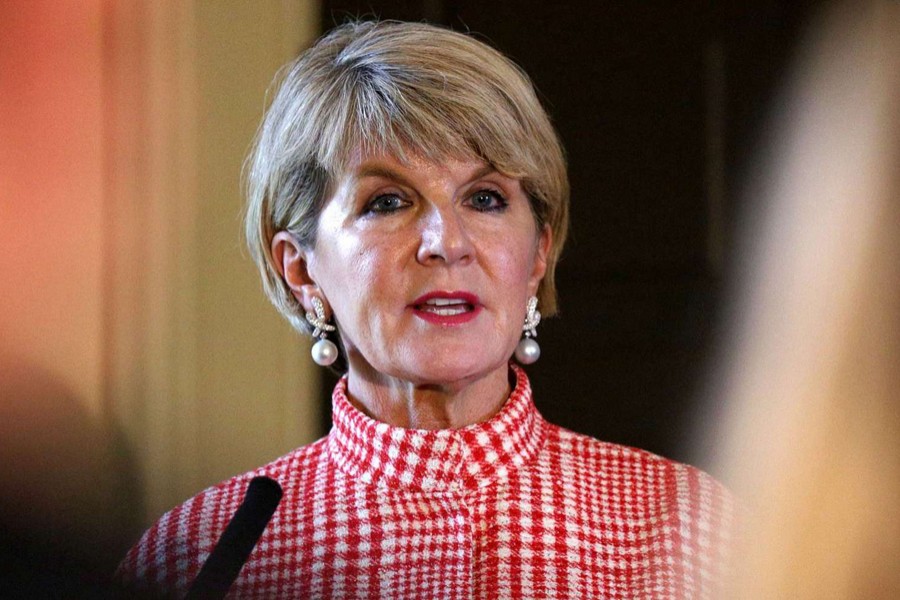
Published :
Updated :

Australia's Foreign Minister Julie Bishop has announced her resignation from the cabinet.
Her move came as new Prime Minister Scott Morrison prepares to announce his new cabinet after winning a bruising leadership contest on Friday.
Ms Bishop said she had not yet decided whether to stand at the next general election, due in 2019.
She had sought the prime minister's job after Malcolm Turnbull stood aside, but was eliminated in the first round.
The leadership fight also ended her 11-year tenure as deputy leader of the Liberal Party.
The 62-year-old from Western Australia has been a federal politician for two decades.
"I will remain on the backbench as a strong voice for Western Australia," she said.
Last week's leadership crisis arose after Mr Turnbull came under pressure from poor polling and what he described as an "insurgency" by conservative MPs.
The Liberal-National coalition government has only a one-seat majority in parliament, and Labor is ahead in opinion polls, with an election to be held at some point before May 2019.
Why is Australian politics so turbulent?
The past decade has been marked by a series of leadership coups, with three other sitting prime ministers deposed by party rivals.
Not a single leader in recent times has succeeded in serving a full term as prime minister, partly because elections come around so often - every three years - two years less than in the UK.
So in recent years, prime ministers unpopular in the polls - or with their colleagues - have been swiftly sacrificed from within, reports Reuters.
Dave Sharma, a former Australian diplomat, says "an election is always just around the corner, meaning members of parliament are forever focused on their electoral survival - and less so on the national interest".
Writing in the Sydney Morning Herald, Mr Sharma says "the steady drip of opinion polls and the relentless media cycle exacerbates the short-termism".
Under the Australian system, as in the UK, the prime minister is not directly elected by voters but is the leader of the party or coalition that can command a majority in parliament.


 For all latest news, follow The Financial Express Google News channel.
For all latest news, follow The Financial Express Google News channel.